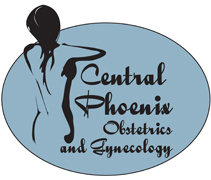 Thyroid Problems are very Common
Thyroid Problems are very Common
- Nearly 20 million Americans have some form of thyroid disease.
- Thyroid disease can impact men and women, at any age.
- Women are 5-8 times more likely to have thyroid problems. 10-12% of women will develop thyroid disease.
- Overactive thyroid—hyperthyroidism.
- Under-active thyroid—hypothyroidism.
- Graves’ disease, or Hashimoto’s thyroiditis.
Thyroid Gland
Your thyroid is a butterfly-shaped gland in your neck, just above your collarbone.
Thyroid hormones control the rate of many activities in your body:
- how fast you burn calories/body weight
- how fast your heart beats
- body temperature
- menstrual bleeding
- the body’s use of other hormones and vitamins, and the growth and maturation of body tissues
- controlled by the pituitary gland in the brain –senses how much hormone is in the blood and adjust the production of hormones in the thyroid
- basic lab tests for thyroid function actually measure the brain hormone
Although the effects can be unpleasant or uncomfortable, most thyroid problems can be managed well if properly diagnosed and treated.
Common Thyroid Problems
- Thyroid Goiter
- Any enlargement of the thyroid.
- Can occur with hyperthyroidism or hypothyroidism with cancer and non-cancerous nodules.
- Most common cause of goiter is iodine deficiency– less common with the use of iodized salt.
- Multiple nodules in the thyroid are very common, but only about 5% of the nodules are a thyroid cancer.
- Thyroid cancer rates have been increasing we do not know why the overall rate has been increasing.
- Loss of Thyroid Tissue
- Treatment of hyperthyroidism by radioactive destruction of thyroid tissue or surgical removal of thyroid tissue can result in hypothyroidism.
- Antithyroid Antibodies
- antibodies may cause decreased production of thyroid hormones because of thyroid destruction.
- These may be present in people who have other immune system diseases like type 1 diabetes, lupus, rheumatoid arthritis, chronic hepatitis, or Sjogren’s syndrome.
- Hashimoto’s thyroiditis, the most common cause of hypothyroidism in an adult, occurs because of autoimmune destruction of the thyroid results in a decreased production of thyroid hormone.
- Medications
- Some medications, particularly lithium for mood disorders or amiodarone for heart disease may cause drug-induced thyroid disease.
- Graves’ Disease
- The immune system produces antibodies that stimulate the thyroid gland causing over production of hormone.
- Toxic Multinodular Goiter
- A nodule in the thyroid gland produces thyroid hormones all by itself, without regard to the signals from the brain.
- Subacute Thyroiditis
- Temporary inflammatory disorder of the thyroid gland.
- There may be periods of increased thyroid hormone release due to the inflammation, causing excess thyroid hormone to be released.
- After the all the thyroid hormone has leaked out of the damaged tissue, a temporary hypothyroid period begins and can last 2-4 months. Usually 90% of people with this condition will go back to normal thyroid function without treatment.
- Pituitary adenoma: Abnormal cells in the pituitary gland causes independent TSH production that leads to over production of thyroid hormone.
- Thyroid Cancer
Symptoms of hypothyroidism
- Excessive fatigue
- Poor growth
- Easy fatigue, exhaustion
- Poor tolerance to cold temperatures
- Constipation
- Carpal tunnel syndrome (pain at the wrists and numbness of the hands)
- Poor appetite
- Weight gain
- Dry skin
- Hair loss
- Intellectual ability worsens
- Deeper, hoarse voice
- Puffiness around the eyes
- Depression
- Irregular menstrual periods or lack of menstrual periods
Symptoms of hyperthyroidism
- Insomnia
- Hand tremors
- Nervousness
- Feeling excessively hot in normal or cold temperatures
- Frequent bowel movements
- Losing weight despite normal or increased appetite
- Excessive sweating
- Menstrual period becomes scant, or ceases altogether
- Joint pains
- Difficulty concentrating
- Eyes seem to be enlarging
Symptoms of hyperthyroidism in the elderly may cause:
- Worsening of angina (chest pain) in persons with heart disease
- Worsening of shortness of breath in persons with heart failure
- Muscle weakness, especially in the shoulders and thighs
- Osteoporosis
- Atrial fibrillation (abnormal fast heart rate)
When to Seek Medical Care for Thyroid Problems
Seek immediate attention at a hospital’s emergency department if you have these signs and symptoms associated with thyroid problems.
- Shortness of breath
- Abdominal pain
- Vomiting
- Confusion
- Chest pain
- Rapid and/or irregular heartbeat
- Shortness of breath
- Abdominal pain
- Vomiting
- Extreme agitation or irritability
- Dizziness
- Disorientation (person has no knowledge of the date or location)
Diagnosing Thyroid Problems
- Thyroid-stimulating hormone (TSH) blood test:In most cases, this is the single most useful lab test in diagnosing thyroid disease. When there is an excess of thyroid hormone in the blood, as in hyperthyroidism, the TSH is low. When there is too little thyroid hormone, as in hypothyroidism, the TSH is high.
Thyroid Disease Facts
Fact: The symptoms of thyroid disease can mirror others making it difficult to diagnose.
Fact: The thyroid needs iodine to properly function. Americans have no problem with iodine intake, so taking extra iodine will not improve your thyroid health. It may actually trigger thyroid dysfunction.
Fact: Your yoga moves will not make your thyroid problems better. While being healthy and stress free are important, yoga cannot cure or prevent thyroid disease.
Fact: Undiagnosed thyroid disease may put patients at risk for certain serious conditions, such as cardiovascular diseases, osteoporosis and infertility.
Fact: Thyroid disease very treatable. There are medications that are available to help the thyroid function properly.
Fact: Aside from iodine, foods/supplements do not cause or treat thyroid disease.
